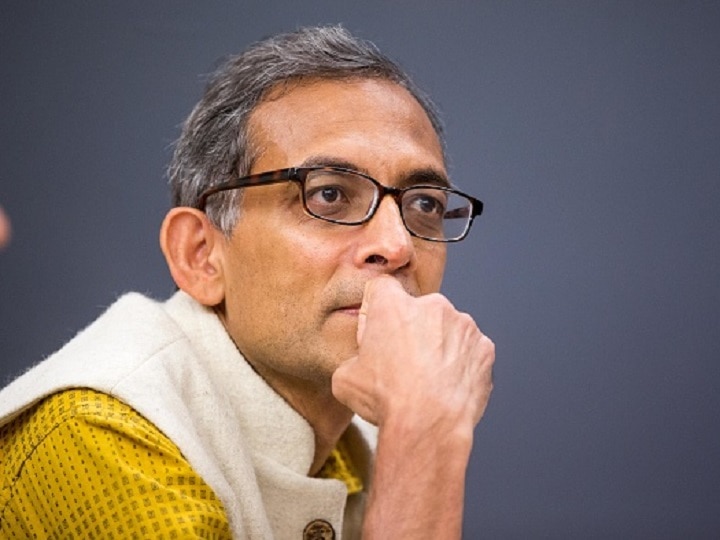Banerjee who is a professor at Massachusetts Institute of Technology, is also an alumnus of Jawaharlal Nehru University and the University of Calcutta. He is the second person of Indian Origin to be awarded the prize after Amartya Sen who received it in 1988. He is the tenth person of Indian origin or citizenship to win a Nobel.
Banerjee has won the Nobel Prize in economics for 2019 jointly with French-American Esther Duflo, his wife and Michael Kremer of Harvard University for "an experimental approach to alleviating global poverty".
In an exclusive interview to ABP News, India-born Nobel winner Abhijit Banerjee told Finance Minister Nirmala Sitharaman was his contemporary at Jawaharlal Nehru University (JNU) where he studied economics. He also spoke about the current slowdown in the Indian economy and outlined what ails it.
With the ceremony taking place on Tuesday, here's the full interview of Nobel laureate Abhijit Banerjee's with ABP Ananda's News Editor Suman Dey.
The other people who are of Indian descent or citizenship who have won or shared Nobel Prizes are: Rabindranath Tagore (for literature in 1913); C.V. Raman (physics, 1930), Har Gobind Khorana (1968, medicine); Mother Teresa (peace, 1979), Subramanyan Chandrasekhar, (physics, 1983); Amartya Sen (economic, 1988), V.S. Naipaul (literature, 2001), Venkatraman Ramakrishnan (chemistry, 2009), and Kailash Satyarthi (peace, 2014).
About Abhijit Banerjee
Nobel laureate Abhijit Banerjee received his BSc from University of Calcutta in 1981, his MA from JNU in 1983 and his PhD from Harvard in 1988. He is now a US citizen. He follows in the footsteps of Sen, whose work in economics also focused on poverty's causes and its alleviation.
Banerjee was one of the advisers to the Congress in this year's elections in moulding the Nyuntam Aay Yojana (NYAY) programme it proposed to give a minimum guaranteed income to 20 per cent poorest people or 50 million families in India. The electorate did not buy into the financial incentive the party offered. "When Less is More: Experimental Evidence on Information Delivery During India's Demonetisation," is one of the research papers he co-authored.
He and Duflo founded the MIT's Abdul Latif Jameel Poverty Action Lab (J-PAL) in 2003, along with Sendhil Mullainathan, now a professor at Chicago University. "The kind of work we've done over the years, when we started, was marginal in economics" and the award is "great for the development field" within economics and reflects the significance of the work done by many of his colleagues, the MIT quoted him in a press release.
Banerjee and Duflo, along with others, published a paper this year on E-governance impact on programme leakage in India. He has also co-authored research papers on topics like the untapped math skills of Indian working children and "teaching at right level" in India.
Another programme of the J-PAL in India was about microfinance based on the work of Bengaluru-based Bharatha Swamukti Samsthe (BSS), the MIT said in an earlier press release. It assessed how participation in microfinance programmes increased when socially influential people got to know about them first.
In 2011, Banerjee was named one of Foreign Policy magazine's top 100 global thinkers.
Noted historian Ramachandra Guha said that Banerjee's ground-breaking scholarship apart, he is also a superb cook and a connoisseur of Hindustani classical music.


